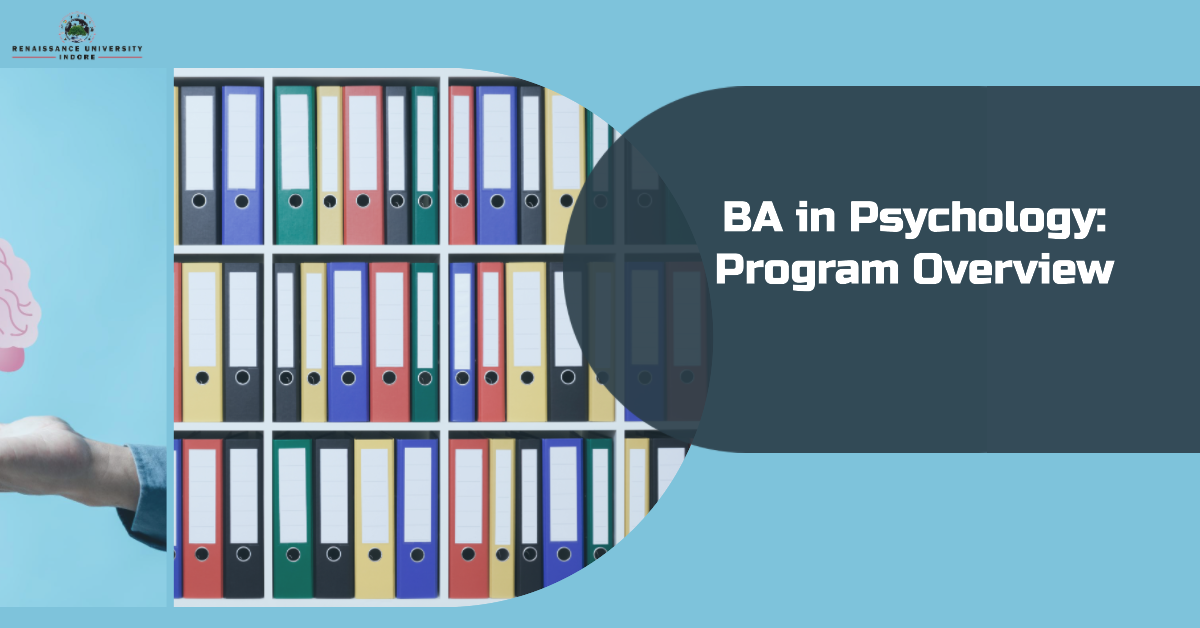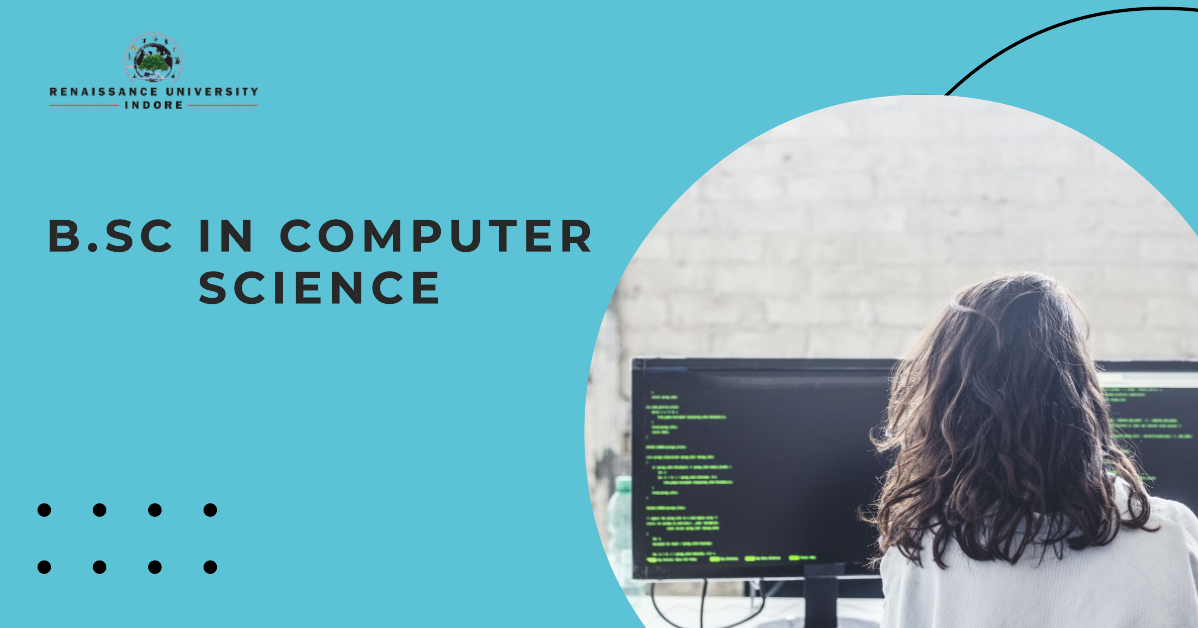Psychology, the fascinating study of the human mind and behavior, offers invaluable insights into what makes us tick. It’s a field that delves into the complexities of human thought, emotion, and interaction, providing answers to questions that intrigue us all. If you’re captivated by the mysteries of the mind and have a genuine curiosity about human behavior, a Bachelor of Arts (BA) in Psychology might be your ideal educational path.
In this comprehensive guide, we’ll take you on a journey through the world of a BA in Psychology. Whether you’re a prospective student weighing your options or someone with a keen interest in the subject, this blog post is designed to be your compass in navigating the program. We’ll explore the program’s structure, core coursework, specializations, faculty expertise, career prospects, and much more.
By the end of this guide, you’ll have a clear understanding of what it takes to pursue a BA in Psychology and the myriad opportunities it can unlock for you. So, let’s embark on this enlightening journey together and uncover the mysteries of human behavior, one insight at a time.
What is a BA in Psychology?
A Bachelor of Arts (BA) in Psychology is an undergraduate degree program that provides a deep and comprehensive understanding of the science of human behavior and mental processes. This program is designed to equip students with the knowledge and skills necessary to explore the intricacies of the human mind, conduct research, and apply psychological principles to various real-world situations.
At its core, a BA in Psychology is a journey to understanding why people think, feel, and behave the way they do. It’s a program that combines the study of psychological theories, research methods, and practical applications to help students make sense of the world around them.
Key Aspects of a BA in Psychology:
- Foundational Knowledge: A BA in Psychology introduces students to the foundational concepts and theories of psychology. This includes areas such as cognitive psychology, behavioral psychology, developmental psychology, social psychology, and more.
- Research Skills: Students learn how to design and conduct research studies, collect and analyze data, and draw meaningful conclusions. This emphasis on research equips graduates with critical thinking and problem-solving skills applicable to various fields.
- Applied Psychology: Beyond theory, a BA in Psychology often explores the practical applications of psychology in areas like clinical psychology, counseling, organizational psychology, and educational psychology. This allows students to consider future career paths.
- Interdisciplinary Perspectives: Psychology is a multidisciplinary field that intersects with various other disciplines, including neuroscience, sociology, anthropology, and philosophy. A BA in Psychology may incorporate elements of these disciplines to provide a holistic understanding of human behavior.
- Communication Skills: Effective communication is vital in psychology, whether it’s in counseling, research, or working with diverse populations. Students often develop strong communication skills through coursework and practical experiences.
- Ethical Considerations: Psychology places a significant emphasis on ethical conduct and the responsible use of psychological knowledge. Students learn about ethical guidelines and the importance of maintaining the well-being and privacy of individuals.
A BA in Psychology is an enriching educational experience that not only deepens your understanding of human behavior but also equips you with transferable skills that are highly valuable in a wide range of professions. Whether you aspire to become a psychologist, counselor, researcher, or pursue a different career path, the knowledge and skills gained from this program will serve as a strong foundation for your future endeavors. In the following sections, we’ll delve deeper into the program structure and the various aspects that make it an exciting and rewarding field of study.
Program Structure and Duration
Understanding the structure and duration of a BA in Psychology program is crucial for prospective students. This section provides insight into what you can expect in terms of coursework, timelines, and degree requirements.
1. Duration: A typical BA in Psychology program usually spans four years if pursued full-time. However, the actual duration can vary depending on factors such as the university’s academic calendar, the number of credits required for graduation, and whether a student chooses to take courses during the summer or engage in part-time study.
2. Credit Requirements: To earn a BA in Psychology, students typically need to complete a specific number of credit hours, which usually amounts to around 120-130 credits. These credits are distributed among core psychology courses, electives, general education requirements, and potentially a capstone project or internship.
3. Core Courses: The core courses in a BA in Psychology program provide a solid foundation in the field. These courses may include introductory psychology, statistics, research methods, developmental psychology, abnormal psychology, and social psychology, among others. Core courses are designed to ensure that students acquire a comprehensive understanding of various subfields within psychology.
4. Electives: In addition to core courses, students often have the flexibility to choose elective courses that align with their interests and career goals. Electives allow students to delve deeper into specific areas of psychology or explore related disciplines, such as sociology or neuroscience. This flexibility enables customization of the degree to suit individual preferences.
5. General Education Requirements: Most universities require students to fulfill general education requirements, which encompass a range of courses in subjects like mathematics, English, history, and natural sciences. These requirements provide a well-rounded education and develop critical thinking and communication skills.
6. Capstone or Internship: Some BA in Psychology programs include a capstone project or internship as a culminating experience. A capstone project typically involves independent research or a comprehensive analysis of a psychological topic. An internship offers hands-on experience in a psychology-related setting, allowing students to apply their knowledge in real-world situations.
7. Advising and Support: Throughout the program, students often receive academic advising and support to help them make informed decisions about their course selections, career goals, and graduate school options.
8. Study Abroad and Exchange Programs: Many universities offer opportunities for students to study abroad or participate in exchange programs, allowing them to gain a global perspective on psychology and expand their cultural awareness.
Understanding the program’s structure and duration can help you plan your academic journey effectively. It’s essential to consult with academic advisors and review the specific requirements of the university or college you plan to attend to ensure you meet all prerequisites and degree criteria. In the next sections, we’ll delve deeper into the core coursework and specializations available within a BA in Psychology program.
Core Coursework
A fundamental aspect of your journey through a Bachelor of Arts (BA) in Psychology program is the core coursework. These courses lay the groundwork for your understanding of psychology and equip you with the essential knowledge and skills needed to navigate the field effectively. Let’s explore the key components of core coursework within a BA in Psychology:
1. Introduction to Psychology: The journey typically begins with an introductory course that provides an overview of the field. You’ll explore the history, major theories, and fundamental concepts of psychology, setting the stage for deeper exploration.
2. Research Methods and Statistics: Understanding how to conduct research and analyze data is crucial in psychology. Courses in research methods and statistics teach you the tools and techniques needed to design experiments, collect data, and draw meaningful conclusions.
3. Developmental Psychology: This course focuses on the study of human development across the lifespan, from infancy to old age. You’ll explore the physical, cognitive, and socioemotional changes that occur at different stages of life.
4. Abnormal Psychology: Abnormal psychology delves into the study of psychological disorders and their treatment. You’ll learn to recognize and understand various mental health conditions, as well as the strategies used in clinical psychology and therapy.
5. Social Psychology: Social psychology examines how individuals’ thoughts, feelings, and behaviors are influenced by social interactions and group dynamics. This course explores topics such as conformity, prejudice, persuasion, and interpersonal relationships.
6. Cognitive Psychology: Cognitive psychology delves into the processes of thinking, memory, perception, and problem-solving. You’ll gain insight into how the mind processes information and makes decisions.
7. Biological Psychology: This course explores the biological basis of behavior, including the brain’s structure and function, neurotransmitters, and the relationship between biology and psychological processes.
8. Personality Psychology: Personality psychology delves into the study of individual differences in behavior and the various theories of personality development. You’ll explore concepts like traits, temperament, and personality assessment.
9. Learning and Behavior: Courses in learning and behavior examine how individuals acquire new behaviors and adapt to their environment. You’ll explore classical and operant conditioning, as well as theories of learning.
10. Sensation and Perception: Sensation and perception courses investigate how we perceive and interpret sensory information from the world around us. Topics include vision, hearing, taste, smell, and the brain’s role in processing sensory input.
11. History and Systems of Psychology: This course offers a historical perspective on the development of psychological theories and schools of thought. It provides insight into how psychology has evolved over time.
These core courses collectively provide a solid foundation in psychology, exposing you to various subfields and preparing you to delve deeper into specialized areas of interest. Additionally, they equip you with critical thinking, research, and communication skills that are valuable in both further academic pursuits and various career paths.
In the next section, we’ll explore the flexibility of electives and the opportunity to specialize within your BA in Psychology program.
Specializations and Electives
One of the unique aspects of pursuing a Bachelor of Arts (BA) in Psychology is the flexibility it offers in tailoring your education to match your interests and career goals. Specializations and electives provide students with the opportunity to delve deeper into specific areas of psychology and related fields. Let’s explore how specializations and electives work within the framework of a BA in Psychology program:
1. Specializations: Many BA in Psychology programs allow students to choose specializations or concentrations. These specializations focus on specific subfields of psychology and provide in-depth knowledge and expertise in those areas. Some common psychology specializations include:
- Clinical Psychology: Concentrating on the diagnosis and treatment of psychological disorders, clinical psychology prepares students for careers in counseling, therapy, and mental health.
- Counseling Psychology: This specialization focuses on helping individuals address personal and emotional challenges. Graduates often work as counselors in various settings, such as schools, clinics, or private practices.
- Child and Adolescent Psychology: Specializing in child and adolescent psychology involves studying the unique psychological development and challenges faced by young individuals. This specialization can lead to careers in educational and developmental psychology.
- Industrial-Organizational Psychology: I-O psychology explores the application of psychological principles in workplace settings. Graduates in this field often work in human resources, organizational development, or employee training.
2. Electives: Elective courses offer students the flexibility to explore additional areas of psychology or related disciplines outside their chosen specialization. These courses allow you to tailor your degree to align with your specific interests and career goals. Some examples of elective topics include:
- Health Psychology: Exploring the link between psychological factors and physical health, including topics such as stress management, health behavior change, and the impact of chronic illness on mental health.
- Forensic Psychology: Delving into the intersection of psychology and the criminal justice system, forensic psychology covers topics like criminal profiling, eyewitness testimony, and the assessment of criminal behavior.
- Neuropsychology: Studying the relationship between the brain and behavior, neuropsychology focuses on understanding how neurological conditions and brain injuries impact cognitive and emotional functioning.
- Positive Psychology: This elective explores the science of well-being, happiness, and positive human functioning. It emphasizes strengths, resilience, and factors that contribute to a fulfilling life.
3. Interdisciplinary Opportunities: Beyond psychology-specific electives, students often have the option to take courses in related fields, such as sociology, anthropology, neuroscience, or education. This interdisciplinary approach can broaden your perspective and provide a well-rounded education.
Selecting specializations and electives that align with your interests and career aspirations allows you to create a personalized educational path within your BA in Psychology program. It also prepares you for more specialized roles in psychology or provides a broader skill set that can be valuable in various professions. Whether you’re passionate about clinical work, research, or a specific area of psychology, the flexibility of specializations and electives enables you to tailor your degree to match your unique ambitions.
In the next section, we’ll explore the role of faculty expertise and research opportunities within a BA in Psychology program.
Faculty and Research Opportunities
The faculty members within a Bachelor of Arts (BA) in Psychology program play a pivotal role in shaping your educational experience. Their expertise, guidance, and mentorship can significantly impact your understanding of psychology and your ability to engage in meaningful research. In this section, we’ll delve into the importance of faculty expertise and the research opportunities available in a BA in Psychology program:
1. Faculty Expertise:
Faculty members in psychology departments are typically experienced professionals with diverse backgrounds and areas of expertise. Here’s why their role is crucial:
- Mentorship: Professors often serve as mentors who can guide you in choosing courses, selecting research topics, and making informed decisions about your academic and career path.
- Research Collaboration: Faculty members frequently engage in research themselves. Joining their research projects can provide you with hands-on experience and insights into the research process.
- Specialized Knowledge: Faculty members bring specialized knowledge to the classroom, allowing you to explore advanced topics and gain in-depth insights into various subfields of psychology.
2. Research Opportunities:
Engaging in research is a valuable component of a BA in Psychology program, and there are several avenues for involvement:
- Undergraduate Research Assistantships: Many universities offer opportunities for undergraduate students to work as research assistants in faculty-led projects. This involvement allows you to contribute to ongoing research and gain practical research skills.
- Independent Research: Some programs encourage or require students to conduct independent research as part of their coursework or as a capstone project. This experience allows you to explore a specific area of interest and develop research expertise.
- Research Internships: Beyond campus-based research, you may have the chance to participate in research internships with external organizations or research centers. These internships provide exposure to real-world research settings and potential networking opportunities.
- Research Conferences: Some students have the opportunity to present their research findings at psychology conferences, which can be a valuable experience for showcasing your work and connecting with professionals in the field.
Participating in research not only deepens your understanding of psychology but also enhances your critical thinking, problem-solving, and analytical skills. It provides a practical application of the theories and concepts you learn in the classroom and prepares you for further academic pursuits or careers in research and academia.
3. Faculty Accessibility:
Most psychology faculty members are accessible and eager to support their students’ academic and professional development. Don’t hesitate to reach out to professors, ask questions, seek advice, and express your interests and goals. Building strong relationships with faculty can lead to valuable opportunities, such as research collaborations, recommendation letters for graduate school, or career guidance.
In conclusion, the faculty within a BA in Psychology program are more than just instructors; they are mentors and collaborators who can enrich your educational journey. Research opportunities provide a hands-on and practical aspect to your education, allowing you to apply your knowledge and develop skills that are highly valuable in the field of psychology and beyond. In the following section, we’ll explore internships and practical experiences that further enhance your preparation for a career in psychology.
BA colleges in Indore
Some well-known colleges and universities in Indore, India, have historically offered Bachelor of Arts (BA) programs in Psychology.
Here are some colleges in Indore known for offering BA programs:
- Renaissance University: Renaissance University is a prominent university in Indore that offers a variety of undergraduate programs, including a BA in Psychology. It is one of the most recognized institutions in the region
- Devi Ahilya Vishwavidyalaya (DAVV): DAVV is a prominent university in Indore and offers a variety of undergraduate programs, including a BA in Psychology.
- Holkar Science College: Holkar Science College, affiliated with DAVV, has a strong reputation for its science and psychology programs.
- RCCM Renaissance College of Commerce & Management: This college is known for its quality education and offers a BA in Psychology among other courses.
- Maharaja Ranjit Singh College of Professional Sciences: This college also provides a BA in Psychology and is known for its commitment to academic excellence.
Internships and Practical Experience
One of the hallmarks of a well-rounded Bachelor of Arts (BA) in Psychology program is the emphasis on real-world application and practical experience. Internships and other hands-on opportunities provide students with a chance to apply their psychological knowledge in professional settings. Let’s explore the significance of internships and practical experiences in a BA in Psychology program:
1. Gaining Real-World Insight:
Internships are invaluable for several reasons:
- Application of Knowledge: They allow students to apply the theoretical concepts learned in the classroom to real-life situations. This practical experience deepens your understanding of psychology and its practical applications.
- Professional Exposure: Internships provide exposure to professional settings, helping you gain insight into potential career paths within psychology. Whether it’s clinical work, counseling, research, or other areas, internships offer a glimpse into the day-to-day activities of professionals in the field.
- Networking Opportunities: Working in a professional environment allows you to connect with professionals in the field, potentially leading to mentorship opportunities, future job prospects, or references for graduate school applications.
2. Types of Internships:
Internship opportunities in psychology are diverse and can align with your specific interests and career goals. Some common types of psychology-related internships include:
- Clinical or Counseling Internships: These internships often involve working with clients or patients in clinical settings, providing therapy, conducting assessments, and gaining experience in mental health treatment.
- Research Internships: Research-focused internships involve assisting faculty members or researchers in conducting studies, collecting data, and analyzing results. This is an excellent choice if you’re considering a research-oriented career.
- Educational Internships: Internships in educational settings, such as schools or educational psychology programs, allow you to work with students, teachers, and administrators to address educational and developmental challenges.
- Nonprofit and Community Organizations: Many nonprofits and community organizations have psychology-related internship opportunities. These experiences may involve working on projects related to social services, advocacy, or community outreach.
3. Building a Resume:
Internships not only enhance your understanding of psychology but also strengthen your resume. Employers and graduate programs often value practical experience as it demonstrates your ability to apply psychological principles in real-world situations. Your internship experience can set you apart from other candidates when seeking employment or applying to graduate programs.
4. Academic Credit: Some BA in Psychology programs offer academic credit for internships, allowing you to earn course credit while gaining practical experience. Be sure to inquire about whether your program offers this option.
5. Internship Placement: Many universities have dedicated career services or internship offices that can help you find internship placements. They can provide guidance on locating opportunities, preparing your application materials, and acing interviews.
In conclusion, internships and practical experiences are integral components of a BA in Psychology program. They bridge the gap between theory and practice, providing you with the skills and insights necessary for success in your future career. Whether you’re interested in clinical work, research, counseling, or other areas of psychology, internships can pave the way for a fulfilling and impactful career. In the next section, we’ll explore the diverse career prospects available to BA in Psychology graduates.
Career Prospects
Earning a Bachelor of Arts (BA) in Psychology opens up a wide range of career opportunities, thanks to the versatile skill set and knowledge base it provides. Whether you’re planning to enter the workforce immediately after graduation or pursue advanced studies, a BA in Psychology can be your stepping stone to a rewarding career. Let’s explore some of the diverse career prospects available to BA in Psychology graduates:
1. Counseling and Therapy:
- Mental Health Counselor: Mental health counselors work with individuals or groups to address emotional, mental, and behavioral issues. They provide therapy, counseling, and support to clients dealing with a variety of challenges.
- Marriage and Family Therapist: Marriage and family therapists specialize in helping couples and families navigate relationship and communication issues. They assist clients in improving their interpersonal dynamics and overall well-being.
2. Clinical and Healthcare Settings:
- Clinical Psychologist: Clinical psychologists assess and treat individuals with psychological disorders, conduct psychological assessments, and provide therapy. Licensing is typically required for this profession.
- Psychiatric Technician: Psychiatric technicians work in psychiatric hospitals and clinics, assisting in the care and treatment of patients with mental health conditions.
3. Education and School Settings:
- School Counselor: School counselors provide guidance and support to students in educational settings. They help students with academic, social, and emotional issues.
- Educational Psychologist: Educational psychologists focus on understanding how students learn and develop. They often work in schools or educational institutions to improve teaching methods and student outcomes.
4. Human Resources and Organizational Settings:
- Industrial-Organizational (I-O) Psychologist: I-O psychologists apply psychological principles to workplace settings. They work with organizations to enhance employee performance, productivity, and well-being.
- Human Resources Specialist: Human resources specialists are responsible for recruiting, training, and managing employees within an organization. They may also handle employee relations and conflict resolution.
5. Research and Academia:
- Research Assistant: Research assistants support ongoing research projects in various fields of psychology. This role often involves data collection, analysis, and literature review.
- Graduate Studies: Many BA in Psychology graduates choose to pursue advanced degrees (such as master’s or doctoral degrees) to become psychologists, researchers, or educators in academia.
6. Social Services and Nonprofit Organizations:
- Social Worker: Social workers help individuals and families cope with challenges such as poverty, homelessness, and abuse. They connect clients with necessary resources and services.
- Community Outreach Coordinator: These professionals work for nonprofits or community organizations, developing and implementing programs to address community needs and improve the well-being of residents.
7. Sales and Marketing:
- Market Research Analyst: Market research analysts study consumer behavior and market trends to help businesses make informed decisions about products, services, and marketing strategies.
8. Government and Public Policy:
- Policy Analyst: Policy analysts research and analyze government policies and their impact on society. They work for government agencies, think tanks, or advocacy organizations.
9. Entrepreneurship:
- Consultant: Some psychology graduates use their knowledge to start their own consulting businesses, offering services such as coaching, leadership development, or organizational psychology consulting.
These are just a few examples of the diverse career paths available to BA in Psychology graduates. The transferable skills acquired during your education, such as critical thinking, communication, research, and interpersonal skills, are highly valued in various industries and can open doors to a wide range of professions.
As you contemplate your career options, it’s essential to align your choices with your interests and goals. Additionally, consider seeking guidance from career counselors, networking with professionals in your chosen field, and gaining relevant experience through internships and volunteer opportunities to enhance your career prospects.
In conclusion, a BA in Psychology is not just a degree; it’s a gateway to a world of opportunities where you can make a meaningful impact on individuals and communities while pursuing a fulfilling and rewarding career.
Conclusion
Embarking on a journey to earn a Bachelor of Arts (BA) in Psychology is not just an academic pursuit; it’s a gateway to a world of understanding, compassion, and countless career opportunities. Throughout this guide, we’ve explored the various facets of a BA in Psychology, from the program structure and core coursework to specializations, internships, and the potential for further education.
This program provides you with a comprehensive understanding of the human mind, behavior, and the intricacies of the human experience. It equips you with valuable skills like critical thinking, research, communication, and empathy, all of which are highly transferable and sought after in a variety of fields.
As you progress through your BA in Psychology, remember that your journey is not limited to the classroom. Seek out internships, research experiences, and connections with faculty members who can guide you toward your goals. Consider the diverse career prospects that await you, from counseling and therapy to research and academia, and beyond.
Should you choose to pursue further education, whether through a master’s program, a doctoral degree, or specialized training, know that you’re on a path to becoming a true expert in your chosen area of psychology? Advanced degrees open doors to leadership roles, research opportunities, and the chance to make a lasting impact in the field.
Ultimately, the field of psychology is a dynamic and ever-evolving one, where curiosity, empathy, and a dedication to understanding the human condition are the driving forces. Your BA in Psychology is your starting point, a foundation upon which you can build a fulfilling and meaningful career. So, embrace your studies with enthusiasm, seek out opportunities for growth, and remember that your journey in psychology is a voyage of discovery, both of others and, importantly, of yourself. The world of psychology is waiting for your insights and contributions, and the possibilities are boundless.
Frequently Asked Questions (FAQ)
1. What is a BA in Psychology, and what does it entail?
- A BA in Psychology is an undergraduate degree program that focuses on the scientific study of human behavior and mental processes. It covers a wide range of topics, including cognitive processes, social interactions, development, and abnormal psychology.
2. What are the typical admission requirements for a BA in Psychology program?
- Admission requirements can vary between colleges and universities, but they generally include a high school diploma or equivalent, standardized test scores (like SAT or ACT), and submission of an application. Some institutions may have additional requirements, such as letters of recommendation or a personal statement.
3. How long does it take to complete a BA in Psychology?
- A typical BA in Psychology program is designed to be completed in four years if pursued full-time. However, the duration may vary depending on factors like part-time enrollment, transfer credits, or program structure.
4. What courses can I expect to take in a BA in Psychology program?
- Core courses often include introductory psychology, research methods, developmental psychology, social psychology, and more. You may also have the opportunity to choose elective courses in specialized areas.
5. Can I specialize in a specific area of psychology during my BA program?
- Yes, many BA programs offer specializations or concentrations in areas such as clinical psychology, counseling psychology, or organizational psychology. These allow you to focus your studies on your particular interests.
6. What career opportunities are available with a BA in Psychology?
- Graduates with a BA in Psychology can pursue a wide range of careers, including roles in counseling, human resources, research, education, and social services. It can also serve as a foundation for advanced degrees in psychology or related fields.
7. Do I need a master’s or doctoral degree to work as a psychologist?
- To become a licensed psychologist, you typically need to pursue a master’s or doctoral degree in psychology and meet licensing requirements, which can vary by region. A BA in Psychology is a stepping stone for further education in psychology.
8. Are there opportunities for research or internships during a BA in Psychology program?
- Yes, many programs offer opportunities for research projects, internships, and hands-on experiences. These can provide valuable practical skills and insights into the field of psychology.
9. What skills can I develop through a BA in Psychology program?
- A BA in Psychology helps you develop critical thinking, research, analytical, communication, and interpersonal skills. These skills are transferable and can be valuable in various career paths.








